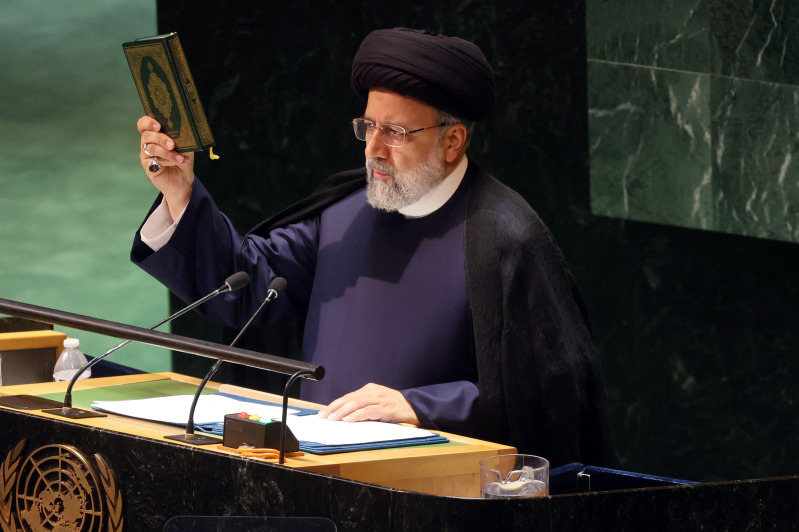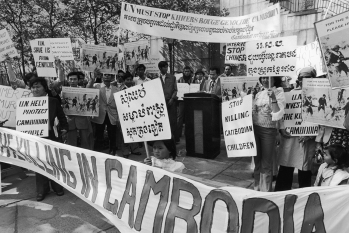
On Sunday, Iran’s President Ebrahim Raisi and Foreign Minister Hossein Amir-Abdollahian died in a helicopter crash after returning from a dam opening ceremony at the border with Azerbaijan, amid heavy fog. Although the second-highest ranking figure in Iranian politics after Supreme Leader Ayatollah Khamenei, Raisi’s death is unlikely to bring about significant change domestically or internationally, according to analysts.
“President Raisi was not the most powerful person in Iran, and was not the most powerful president in Iranian history. He was widely viewed as one of the weakest,” The BBC’s Lyse Doucet commented, pointing to the record low turnout in the 2021 election amid suppression of Raisi’s rivals.
“He was a middle-ranking cleric, a leading conservative, a hardliner who showed unconditional loyalty to the Supreme Leader Ayatollah Khamenei who is the ultimate authority in the Islamic Republic of Iran,” she added.
Similar to Raisi, Interim President Mohammad Mokhber, who previously served as Vice-President, is considered close to the Supreme Leader and shares the same ideology. Mokhber will be “facilitating the election of a new president within a maximum of 50 days,” according to an announcement by Khamenei.
It is widely expected that the next president will follow the same political direction under Khamenei’s rule, despite widespread discontent with the government among large parts of the population. In March, millions of Iranians boycotted the parliamentary vote highlighting how serious the crisis of legitimacy has become for Iran’s ruling class.
Shifting societal attitudes and changing spiritual atmosphere despite oppression
Home to a diverse population of some 84 million people, Iran has often featured in international headlines as a politically destabilizing force in the region that feeds its proxies and allies in neighboring countries with weapons and financial support, while suppressing dissent at home.
However, economic pressures, shifting attitudes in the younger generation, and recent events that led to public outcries against the government have led to a change in the atmosphere in society. Most notably the death of 22-year old Mahsa Amini at the hands of Iran’s morality police who arrested her because she allegedly wasn’t wearing her hijab properly. Mass protests followed across the country but were violently suppressed by Raisi’s government.
In a recent interview with Christian Daily International, Iran Alive Ministries’ Lily Meschi pointed to spiritual changes taking place underneath the visible cultural shifts, as she witnesses how many Iranians – the majority of them women – are coming to faith. This despite Iran being among the countries where Christians are experiencing the highest levels of persecution in the world.
“Women are mostly oppressed in Iran through so many different laws that are just set against them. Inequality, wages, family laws: everything is just set up in a way that is against women. They are treated as second-class citizens as it is a very male dominant society in Iran,” Meschi shares.
“And so they are just fed up with being subjugated to all the rules, the Islamic rule and also the male dominance, and they have become braver and bolder just like the younger generation today,” she says.
After years of oppression and strict Islamic rules that restrict many aspects of public and private life, people have grown tired with the status quo and are longing for change.
“Especially the newer generation, Gen Z in particular, they are standing up for their rights, demanding freedom, something where their parents and grandparents could not prevail against this government. And they now are willing to put their lives on the line for their freedom,” Meschi commented.
“Women have been oppressed and under pressure for so long. When they realize their identity in Christ as the daughter of the Most High God who has bestowed His grace and mercy and favor upon them and has chosen them, blessed come, accepted them, they become fired up for Christ,” she said.




